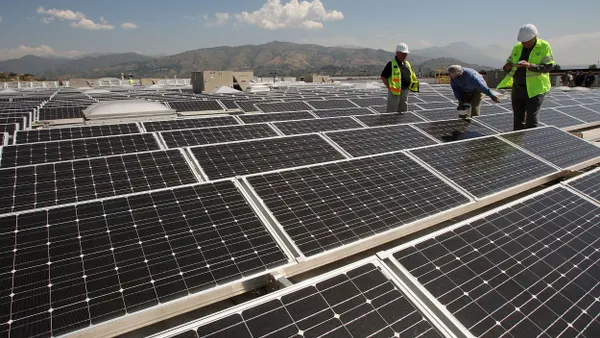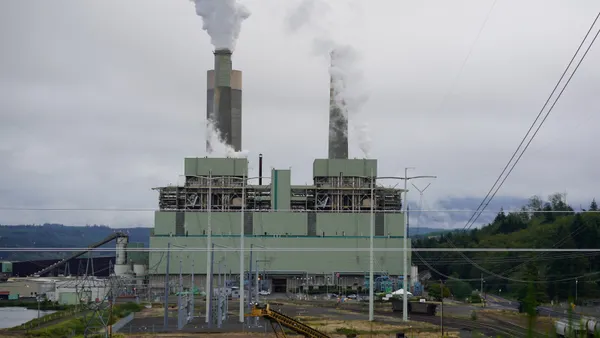Dive Brief:
- The Tennessee Valley Authority's (TVA) plans to phase out its aging fleet of coal plants within the next 15 years because the plants, like most coal plants, are becoming uneconomical to operate.
- For TVA, all replacement options, including natural gas and nuclear, are on the table as it tries to meet the Biden administration's power sector decarbonization goals and its own mandate to deliver low cost and reliable power to its ratepayers, Jeffrey Lyash, TVA president and CEO, said on Wednesday during an Atlantic Council conference. The federally-owned utility has retired about 60% of its coal generation, he said at the event.
- Coal plant replacement options and the TVA's carbon reduction goals will be discussed at next Thursday's board of directors meeting, TVA spokesperson Jim Hopson said, and officials expect the federal utility to open up a new integrated resource plan (IRP) process.
Dive Insight:
That coal plants are becoming uneconomical is not news, but TVA saying that its coal plants are becoming uneconomical means it has to act. Under the TVA Act, the U.S.' largest public utility must reliably deliver the lowest cost power to its ratepayers.
To map out TVA's coal fleet retirements and other carbon reductions, a new IRP process will probably be needed, TVA observers said.
Lyash's statement that the TVA will retire its five remaining coal plants comes amid President Joe Biden's call to decarbonize the power sector by 2035.
"Retiring the coal plants is a major advancement that opens the door for TVA to utilize renewable energy resources such as solar systems, battery storage, and energy efficiency programs, all of which mitigate the threats of climate change while creating millions of well-paying union jobs, rebuilding our country's infrastructure," said Stephen Smith, executive director at the Southern Alliance for Clean Energy (SACE).
Clean energy advocates, like Smith, want TVA to play a leading role in the energy transition. "There's a big difference between being coal free and being carbon free," Smith said.
The utility has other considerations beyond decarbonization.
"If your goal is to reduce or eliminate carbon [emissions], you need a reliable backstop," Hopson noted.
"Natural gas is a viable bridging technology in the short term," he said. "Nuclear is very economical, and it's a source of carbon-free energy," he added. Two years ago, TVA received an early site permit to further explore small modular reactors (SMRs) near Oak Ridge, Tennessee. No SMRs are operating in the U.S. currently.
According to Jason Burwen, interim CEO of the U.S. Energy Storage Association, replacing coal power plants with renewable generation and battery storage is a viable option.
"Several utilities have successfully replaced or are replacing coal power plants with a combination of renewable generation and significant energy storage capacity — employing hundreds of megawatts or even gigawatts," Burwen said. Utilities like APS in Arizona, NIPSCO in Indiana, Xcel in Colorado, PNM in New Mexico, and Pacificorp. across its Western territory, have gone this route, he pointed out. "TVA is fortunate to have a well-used, proven playbook to move forward as it retires its coal plants," he said.
Last week, the Biden administration nominated four individuals to TVA's board. None of the nominees are known clean energy advocates, but to some clean energy advocates like SACE, the fact that the administration put forward nominees before two board members' terms come up in late May is a sign that the TVA's decarbonization effort might come under closer scrutiny in the coming months.
According to SACE, the five coal plants that the TVA plans to retire emitted more than 26 million tons of carbon in 2019.













